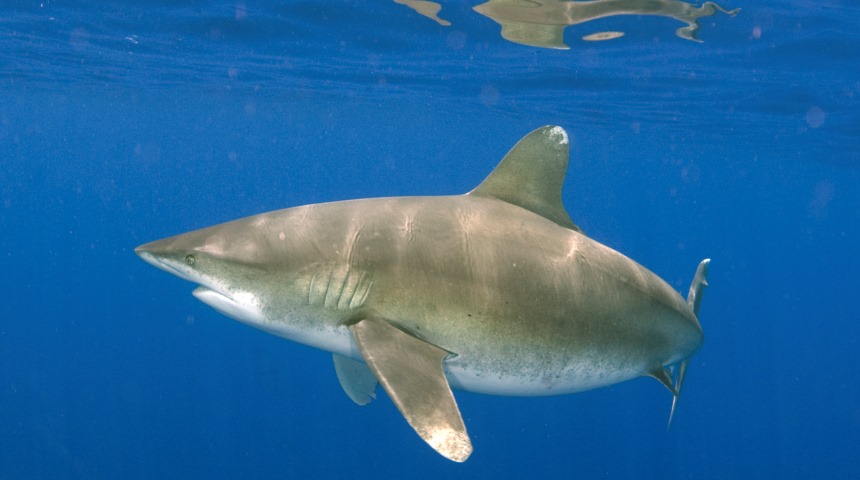
Warm sea surface temperatures during summers have drastic effects on the diving behaviour of oceanic whitetip sharks, and could have profound implications for their survival as the climate changes, researchers say.
An international team including Dr Adrian Gleiss from Murdoch University, found the whitetips reduced their time spent in the upper 50 metres of the ocean in the summer months when sea surface temperatures were above 28°C.
Dr Gleiss said most species of shark, including whitetips, are known as ectotherms, meaning they cannot regulate their body temperature like mammals.
“Instead they rely on selecting water temperatures that are beneficial to their physiology and so dive or resurface to these depths. Our work suggests that in waters above 28°C, oceanic whitetips are probably seeing their bodies’ performance diminish,” he said.
Dr Gleiss said the findings indicated that warming sea temperatures might mean the sharks are forced to remain in deeper zones where their preferred prey are less abundant and to areas of the ocean where they may be more vulnerable to different fishing methods.
Oceanic whitetips are typically found in tropical and warm temperate seas across the world and feed mainly on squid and bony fish. Recent studies show their populations are declining because its large fins are highly valued as the main ingredient in shark fin soup.
Implications for whitetip conservation
The research team used information downloaded from satellite tags recovered from 16 whitetips near Cat Island in The Bahamas.
When sea surface temperatures were below 28°C, the researchers found the sharks spent considerable time in the top 50m of water. But when temperatures in this zone rose above 28°C, they would only spend fleeting moments there, instead preferring to spend the majority of their time in deeper, cooler waters.
PhD candidate and lead author on the research Samantha Andrzejaczek from the University of Western Australia, said the findings had important consequences for the conservation for whitetips.
“If we know the depths where whitetips are likely to be found we can ask commercial fishers not to set their hooks there in an effort to reduce bycatch of this species.
“Whitetips are particularly vulnerable to fishing pressures as they are attracted to longline bait intended for other species.”
Dr Gleiss said future studies should investigate the responses of other fishes to changing climates.
Researchers from the Australian Institute of Marine Science, the Cape Eleuthera Institute and Microwave Telemetry, also contributed to the study, which can be read in the prestigious journal Scientific Reports.